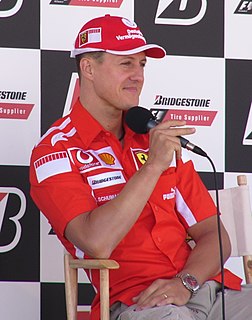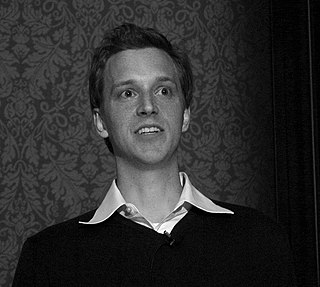A Quote by Eric S. Raymond
For the first time, individual hackers could afford to have home machines comparable in power and storage capacity to the minicomputers of ten years earlier - Unix engines capable of supporting a full development environment and talking to the Internet.
Related Quotes
Professionalism merges the individual into patterns of total environment. Amateurism seeks the development of the total awareness of the individual and the critical awareness of the groundrules of society. The amateur can afford to lose. The professional tends to classify and specialise, to accept uncritically the groundrules of the environment. The groundrules provided by the mass response of his colleagues serve as a pervasive environment of which he is contentedly unaware. The 'expert' is the man who stays put.
The development of artificial intelligence may well imply that man will relinquish his intellectual supremacy in favor of thinking machines. With oceans of time available for future innovation, there seems to be no reason why machines cannot achieve and surpass anything of which the human brain is capable.
Many years ago I had two small children, and I wanted to be able to be home when they got home from school. And I didn't like the direction journalism was taking. I thought if I could write books, I could work at home and have the best of both worlds. I wrote my first mystery while still working full time, and it didn't sell, but the next one did sell, so I quit my job for the world of fiction. Scary, but I've never regretted it for a single day.
In earlier years, a lesser effort produced literally dozens of comparable opportunities. It is difficult to be objective about the causes for such diminution of one's own productivity. Three factors that seem apparent are: (1) a somewhat changed market environment; (2) our increased size; and (3) substantially more competition.
Professionalism is environmental. Amateurism is anti environmental. Professionalism merges the individual into patterns of total environment. Amateurism seeks the development of the total awareness of the individual and the critical awareness of the ground rules of society. The amateur can afford to loose.
Every other word out of every other Chinese mouth is "development, development, development, development." And that's what they're talking about it - because they believe it, A, enables them, with development, to have the kind of status they want in the world, and B, it enables them to deal with their internal problems, having to do with poverty, urban-rural as well as the environment.

































